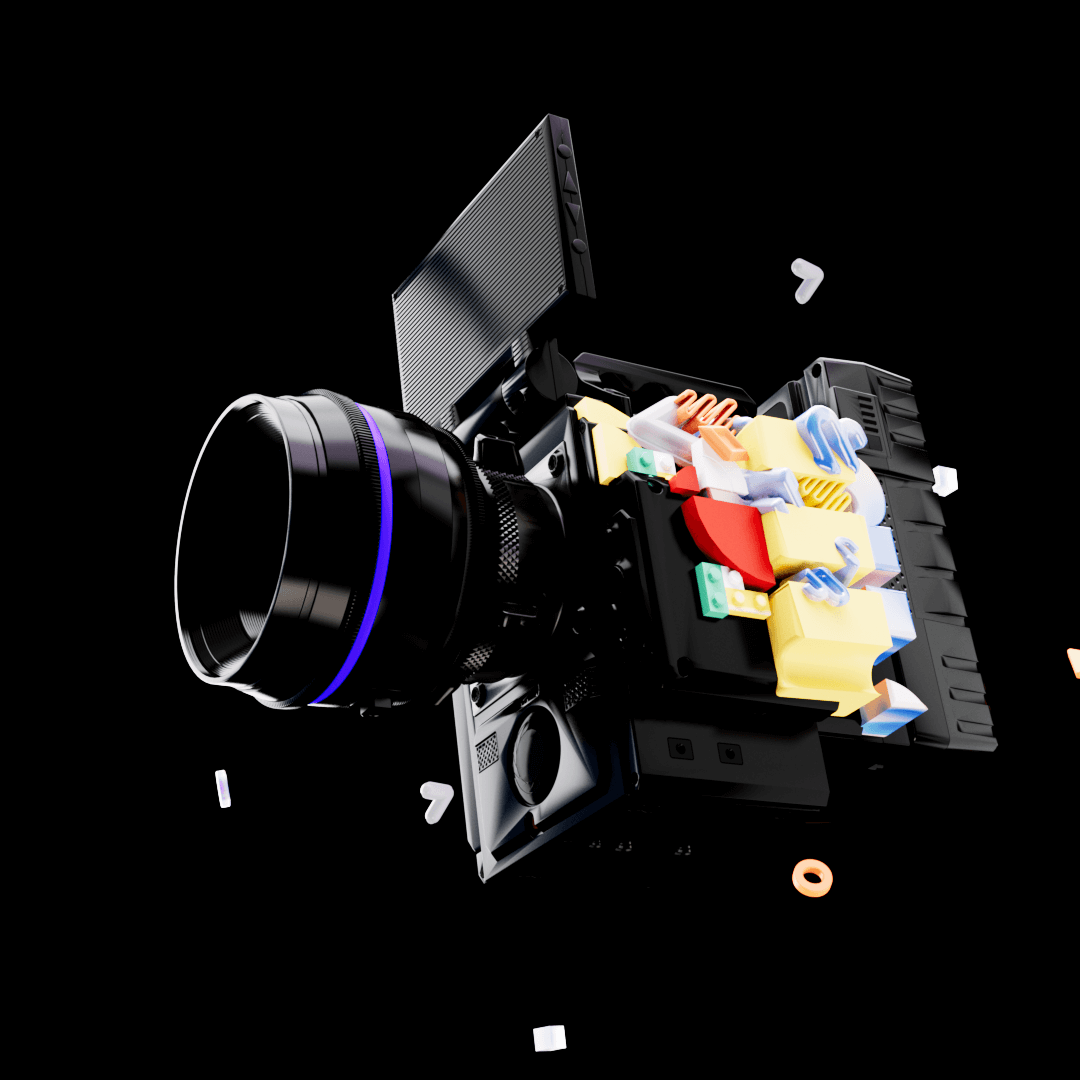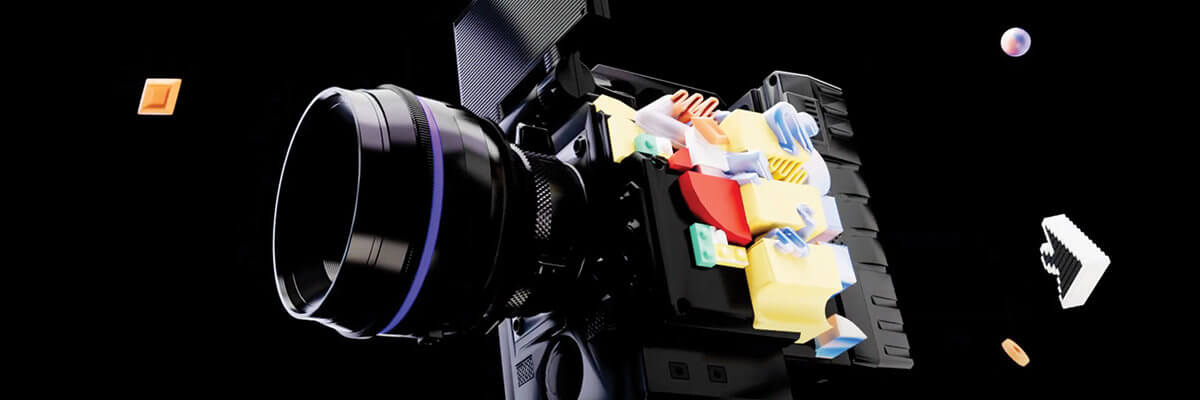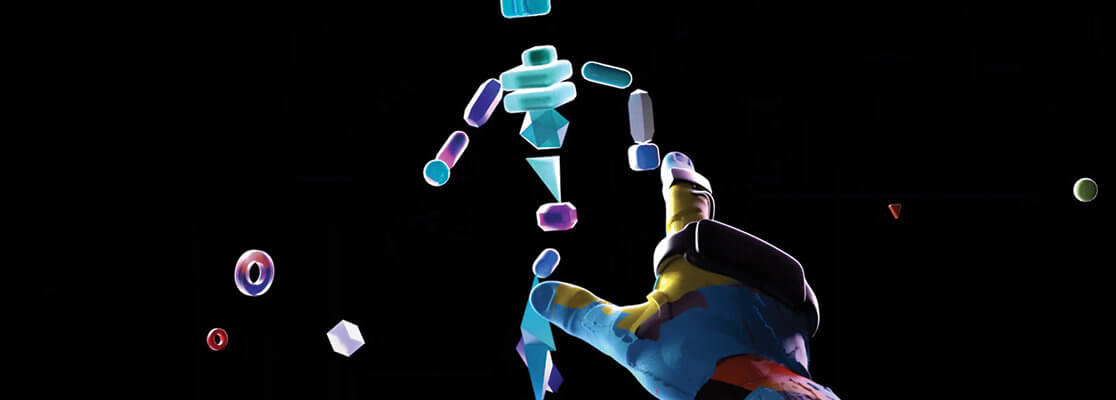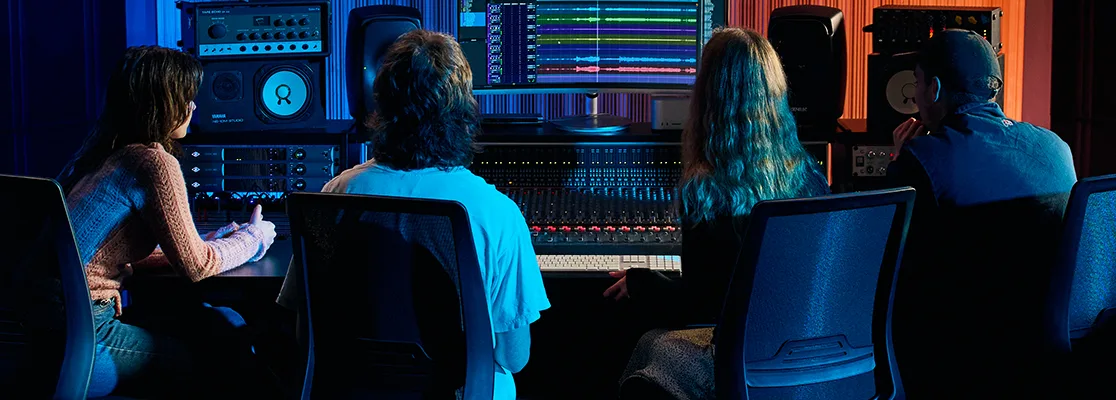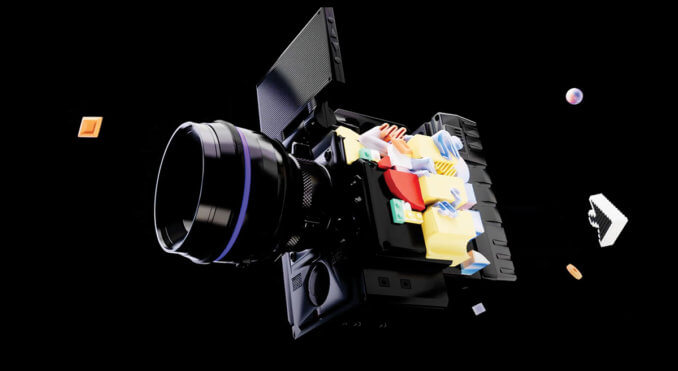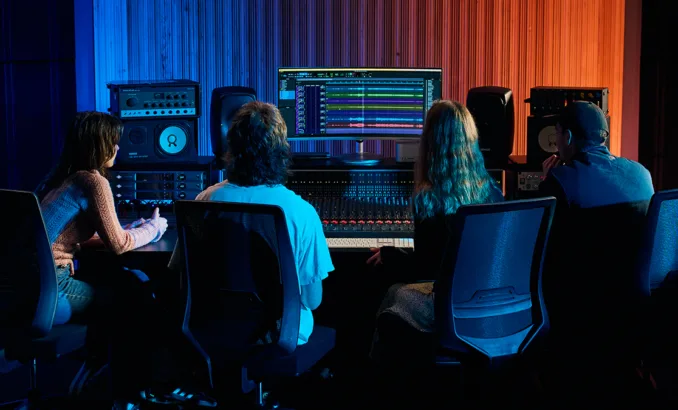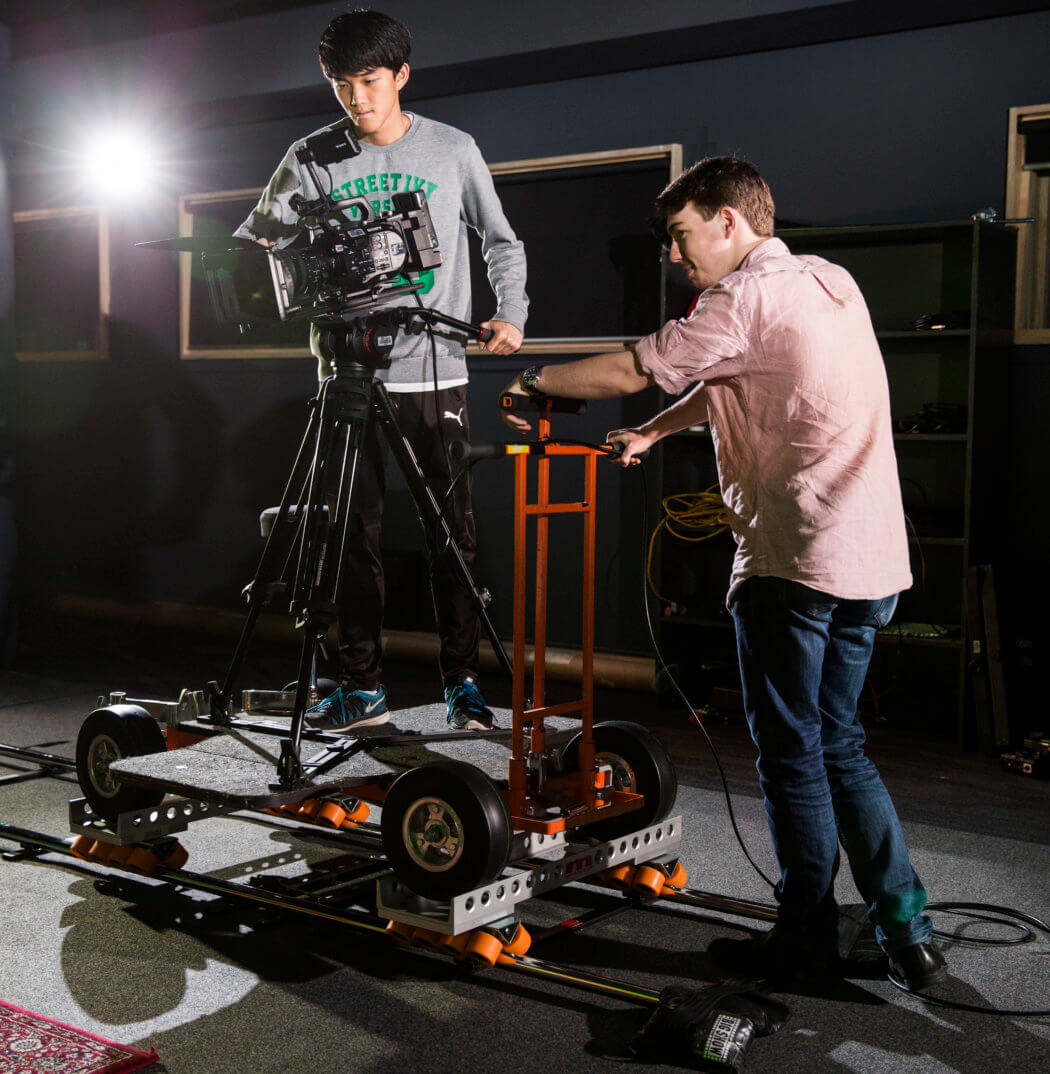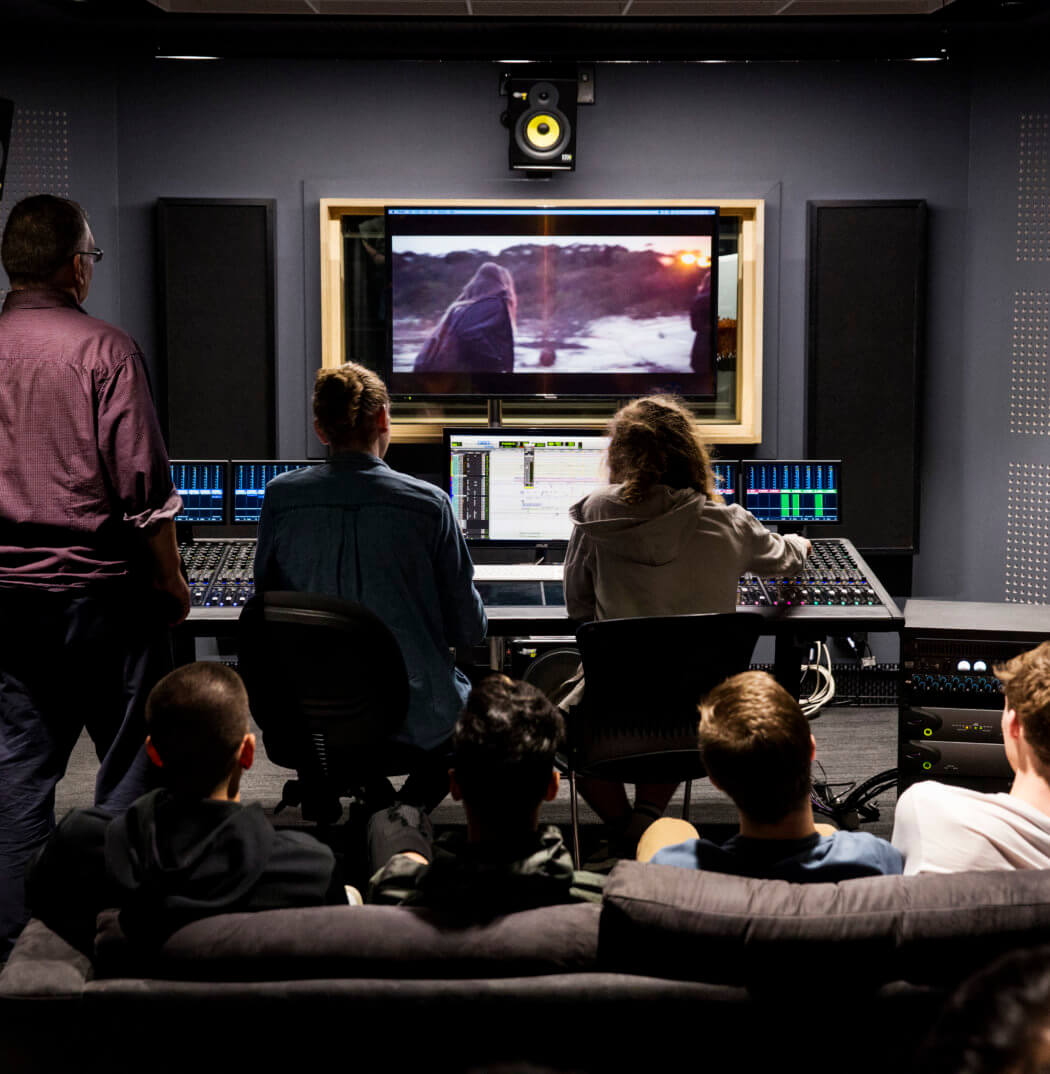Bachelor of Film
LOOK THROUGH THE LENS TO SEE YOUR FUTURE IN FILM
On-Campus
Ideal for students who thrive in a face-to-face environment with access to studios, peers, and in-person support.
- Includes 2 hours of weekly on-campus classes plus 1 hour of national content (online or asynchronous).
- Classes run Monday to Friday, morning, afternoon, and evening, with access to digital resources and support.
- Perfect for hands-on learning, collaboration, and real-time feedback.
Blended Delivery
Designed for those who want the best of both worlds, structured face-to-face learning with online flexibility.
- Combines 2 hours of live (on-campus or online) classes with 1 hour of national content each week.
- Balances in-person connection with the convenience of remote access.
- Supported by SAE’s online learning tools and self-directed study resources.
National Expertise
No matter how you study, you’ll learn from SAE’s national team of expert, industry-aligned faculty.
- Access top educators and specialists across Australia, wherever they’re based.
- Benefit from national masterclasses, guest lectures, and collaborative learning.
- Tap into deep industry knowledge that goes beyond your local campus.
Units x Costs ($AUD)
12 x $2,999
4 x $3,236
4 x $5,998
Indicative Annual Course Fee*
(based on 1.0 EFTSL)
$24,940 AUD Year 1
$23,992 AUD Year 2
$23,992 AUD Year 3
Plus Student Services and Amenities Fee (SSAF)
* The Indicative Annual Course Fee reflects that students are charged fees on a per unit basis and the fee for a unit may increase.
For more information view the SAE Fee Schedule or visit the Fees & Payment page.
Units x Costs ($AUD)
12 x $3,495
4 x $3,773
4 x $6,990
Indicative Annual Course Fee*
(based on 1.0 EFTSL)
$29,072 AUD Year 1
$27,960 AUD Year 2
$27,960 AUD Year 3
Plus Student Services and Amenities Fee (SSAF)
* The Indicative Annual Course Fee reflects that students are charged fees on a per unit basis and the fee for a unit may increase.
For more information view the SAE Fee Schedule or visit the Fees & Payment page.
Complete your course faster by studying units across 2 years (6 trimesters).
Complete your course faster by studying units across 2 years (6 trimesters).
Complete the study units across 2.5 years (8 trimesters).
Whilst still classified as a full-time study load, you will complete course units over a 3 year period (9 trimesters).
If you want to take a little longer, that’s ok too. We’ll help you work out the best study load to suit your needs.
Note: Part-time is not available for international students.
September 2025
February 2026
May 2026
September 2025
February 2026
May 2026
September 2025
February 2026
May 2026
September 2025
February 2026
May 2026
September 2025
February 2026
May 2026
Your creative career starts with SAE
Course Structure
The Bachelor of Film is broken up into three distinct stages, each designed to develop different skills.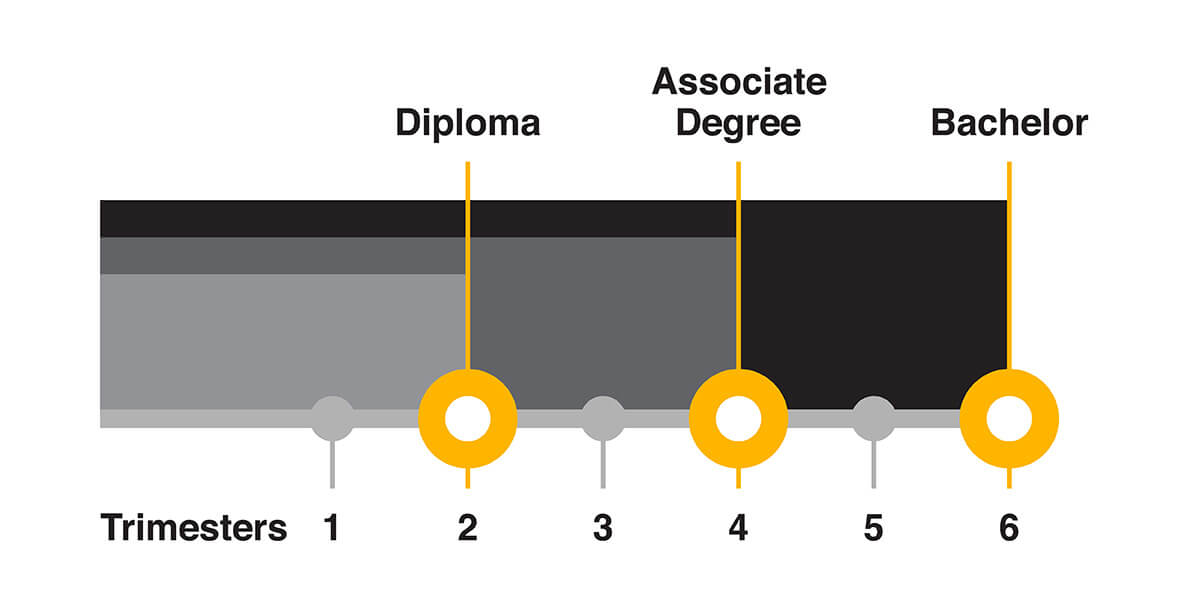
This unit introduces you to the fundamental principles of screen studies, including theory and history, to explore ways in which these principles are connected to screen practice. Emphasis is placed on how these concepts and approaches work within screen production, allowing you to develop analytical, critical reflection and creative thinking skills by applying your understanding of topics in project-based activities. Finally, this unit should assist you in becoming more critically aware of your craft and introduce you to ways of developing your knowledge of screen production.
This unit aims to instil a basic working knowledge of the structures, aesthetics and technologies involved in digital post-production. There is a particular emphasis on the editing process, as well as a general introduction to audio mixing, titling, colour grading and authoring processes within an industry-level non-linear editing tool.
Editing techniques and approaches vary between different mediums and this unit focuses on both documentary and drama workflows and file management protocols. Effective communication of narrative is the main focus of the unit, and you will learn to edit for narrative clarity, performance, subtext and dramatic effect. Historical and contemporary perspectives on montage theory and continuity editing theory will be explored to broaden your understanding and approach to the art of editing.
You will be introduced to the theory and principles of storytelling across a range of contemporary creative media contexts, which will then be applied to the creation of storytelling documents appropriate to your discipline. Theoretical approaches to plot, structure, character, story world, theme and genre will be explored and applied to a range of story development tools to engage your audience. Feedback processes and reflection are essential in the development of engaging stories, and you are expected to document your process and feedback from your facilitator and peers.
In this unit, students will draw upon practical theories of screenwriting and engage in industry standard iterative practices to produce high quality screenplays for short film production. The unit will introduce strategies for concept development, provide students with the opportunity to refine supporting documentation such a synopsis, outline or treatment, and guide students in applying stylistic conventions and narrative theories to their story ideas. The unit focuses on communicating strong characters and story worlds on the page, and crafting effective dialogue and scenes that engage audiences emotionally. Screenwriting is a learned craft that requires discipline, perseverance and an understanding of industry practice. You will engage with professional feedback processes as you develop your story concepts through to script stage, and then a pitch deck and final draft script.
In this unit, students will strengthen and consolidate their emerging filmmaking skills through the application of industry standard directing and producing techniques. The unit will introduce key principles of scene analysis and directing for students to produce a short showreel scene, and guide students to the best praxical application of directing and producing protocols. The unit focuses on the essential collaboration of directors and producers to work together to deliver high-quality, on-screen outcomes such as complex and realistic actor performances, and a shared creative vision. Understanding the roles of the director and producer and the need to support each other in a collaborative group to realise the best possible on-screen outcomes is an essential part of professional filmmaking, and will establish and hone transferable skills necessary for your work at SAE and beyond.
You will be introduced to the craft of filmmaking through participation in practical film shoots. Introductory learning of camera exposure, lighting and sound equipment, will be supported by a study of the fundamentals of frame composition and cinematography. The key roles and responsibilities of a working film crew, production processes and protocols are covered, including workplace health and safety. Familiarity with the using film production equipment and its safe assembly is as important in this subject as the technical and creative elements of visual storytelling.
Sound in the environment is crucial in our daily lives and in the production of nearly all media. When working with sound, we constantly desire to control our acoustic environment in the first instance to obtain uncontaminated recordings and, secondly, to clinically listen to and work with these recordings. The goal of this Unit is to guide you through and expose you to various disciplines of sound and sound recording that exist outside of the controlled environment of the studio—to lead through sonic encounters with the world around us. From Film sound and its associated location recordings, documentary recordings and acoustic ecology to recreating these environments through Foley recording, this Unit aims to expose you to practical and theoretical experience with location sound. Exploring recording devices, microphones and microphone techniques to multi-track digital audio workstations (DAWs)– this course expands through ideas and practices of location sound, exposing these components and exploring their connection to various media.
This unit explores the concepts of entrepreneurship, innovation and project design. You will develop approaches to identify promising opportunities and actionable strategies to transform them into tangible successes. Through exposure to developing new ideas, processes and ways of working - both individually and in entrepreneurial teams - you will hone skills to put creative ideas into practice and achieve real-world impact.
As Alan Kay explained, "The best way to predict the future is to create it", so let's get at it!
Media and culture are not simply entertainment, but something that affects the “real world”, our everyday lives, and our worldviews. As such, we will not ask whether media accurately reflect the real world but instead ask how media shape, reinforce, and challenge power structures that influence our understanding of the world and ourselves. This unit takes a ‘critical theory’ approach to analyze media and culture. In this unit, you will explore media texts, contexts and meaning, society and subjectivity, pop culture aesthetics, and critical cultural discourses that inform creative media practices.
Drawing on a range of creative content and analytical frameworks, you will be encouraged to develop ways of thinking about media and culture that demonstrate a broad awareness of aesthetic principles and stylistic trends; subjectivity, agency, ethics, and relations of power; contexts, disciplines and discursive formations. In support of this exploration, you will produce a range of media artifacts that explore and contextualize the relationship of media to culture through individual analysis, collaborative and interdisciplinary creative practice, and critical reflection.
In this unit, you will collaborate on interdisciplinary projects that blend creativity and technology across fields such as film, audio, music, gaming, design, and computer science. Through project-based learning, you'll explore how different disciplines contribute to innovative outcomes—like immersive installations or interactive experiences. The unit focuses on strengthening communication, problem-solving, and teamwork across creative and technical areas. You'll be challenged to apply your existing skills while embracing new perspectives and ways of working, developing a holistic understanding of contemporary media production and preparing you to deliver complex, boundary-pushing creative solutions.
In this unit, you will step into the dynamic world of filmmaking, mirroring industry processes from conception to distribution. Through hands-on experience, you will navigate the stages of development, pre-production, principal photography, post-production, and distribution. Emphasising a real-world approach, you will collaborate on creating a short film, honing your skills in creative leadership and teamwork as you specialise in a critical production role. FLM216 fosters a holistic understanding of the filmmaking craft and prepares you for the challenges and opportunities in the landscape of the industry.
This unit offers a deep dive into the art and craft of documentary filmmaking. Through a series of hands-on workshops, insightful lectures, and practical exercises, participants will learn the fundamental principles of storytelling, cinematography, sound design, and editing specific to the documentary genre. From conceptualization to production and post-production, students will explore the ethical considerations, creative techniques, and technical skills essential for creating impactful and authentic documentaries. Drawing inspiration from a diverse range of documentary styles and filmmakers, participants will have the opportunity to develop their unique voice and vision while gaining practical experience in crafting compelling narratives that resonate with audiences.
Cinematography II will expand your knowledge in the areas of camera and lighting, which are essential skills required to have a career as a Director of Photography. The skills you learn in this unit can be applied to any form of film/TV production; short films, documentaries, music videos, TV commercials etc. You will learn to use technically advanced cameras, prime lenses and follow-focus units, as well as learn to shoot in LOG format (flatter colour space) and utilise LUTs (Look Up Tables) to enhance the look of your footage in colour grading. Lighting fixtures will be utilised in a variety of studio shooting scenarios, including day/night interiors and also green screen sequences. ND Filters will be explored in more detail, adding another creative tool to your filmmaking arsenal. Further focus will be placed on effective shot coverage and framing techniques in both drama and documentary settings.
This unit seeks to deepen an understanding and proficiency in advanced techniques. It delves into sophisticated methodologies across color grading, visual effects, sound design, and advanced editing. Through rigorous exploration and practical application, students will gain insight into the complexities of post-production workflows and refine their technical skills. Emphasizing critical analysis and practical exercises, this academic unit provides a platform for participants to engage in scholarly discourse, collaborative learning, and hands-on experimentation. By interrogating theoretical frameworks and industry practices, participants will develop a nuanced understanding of film post-production and enhance their ability to produce compelling cinematic works.
Through a combination of theoretical examination and practical application, this unit provides students with the foundational knowledge and skills necessary to excel in client-driven film production environments. Students will explore key concepts such as client communication, project management, budgeting, and delivery expectations within the context of filmmaking. Through case studies and hands-on exercises, participants will develop strategies for meeting client objectives while maintaining artistic integrity and creative vision. Emphasizing collaboration, problem-solving, and adaptability, this unit equips participants with the tools and techniques needed to navigate the dynamic landscape of client-based film production successfully.
Developing new creative skills and improving upon existing skills is an essential part of the creative media practitioner’s professional development. Identifying industry-relevant skills, making an action plan for improvement, and building in a reflective process for future development assists creative practitioners to continually build their skills portfolio.
In this unit you will undertake a skills self-reflection process where you will identify an area you wish to improve upon. Through a study of goal setting and deliberate practice processes, you will plan and implement a personal creative media project to develop these skills under the tutelage of a mentor. Peer and facilitator feedback sessions will help you to tune the projects and examples of great goal setting from industry professionals will be used to guide this personal exploration. Through the completion of this unit, you will develop a practice that can be taken with you and aid your personal and professional life.
The transition from study to work is an important step for you as an emerging professional in the creative industries. Work Integrated Learning provides you with a professional experience opportunity that both complements and deepens the skills and knowledge you have gained from study. Placement requires a minimum of 80 hours at one or more host organisations.
Major Project Development is the first step towards completing your Capstone Project. In this unit, you will develop a concept into a significant and impactful project that showcases your skills and knowledge in your chosen field. This unit emphasises the importance of developing projects with real-world significance, aiming to cultivate skills in critical thinking, creativity, and effective communication.
By the end of this unit, you will have a well-defined project concept, a viable prototype, and a solid project plan, all setting a strong foundation for your Capstone Project. There are multiple pathways students can take for their major projects. They can pitch a project concept and, if approved, form a team to develop it. Alternatively, they can join another group, or work independently as freelancers, contributing to multiple projects and developing their freelance identity.
The aim of this unit is to introduce you to the core business structures, management frameworks and marketing strategies used by contemporary creative professionals. You will discover the key behaviours and practices of successful creative business people and the business principles they implement – strategies you can use in your own professional practice. This knowledge will assist you in effectively exploring your creative business niche, encouraging you to develop and operate as a sustainable professional within your chosen media field. Through an examination of marketing strategies and processes, you will be able to identify and target specific consumers and markets. You will then research and develop a product- or service-based business that meets the demand within these target markets. You will also develop fundamental marketing, promotional, communication, and financial skills essential to running a creative media business as well as exploring start-up methodologies and structures within the creative industries.
CIM330 Major Project Production, along with CIM310 Work-Integrated Learning and CIM312 Major Project Development, form the final capstone experience of your undergraduate studies. In CIM330, you will build on the project plan and pre-production work that you have completed in CIM312. You will now complete the production and delivery of your final creative work. This will include the execution of the marketing and distribution plan developed in CIM312. Broadly speaking, this unit is about production and exhibition.
You will apply all of the production processes and procedures you have learned over the course of your degree and record these in your Documented Professional Practice as a means of demonstrating your progress and contribution within your team.
In this unit, your final project will now move into its production phase. Over the coming weeks, you will work collaboratively to deliver your creative work. You will apply the processes and standards you have learned throughout your learning at SAE. You will keep a record of this production process via Documented Professional Practice and deliver the production documentation appropriate to your project. Your CIM330 project supervisor will be a reference point for this documentation process.
Your project supervisor will meet frequently with you and your team during the trimester and will work with you to control and guide the scope of your project. This process ensures that by the end of CIM330 Major Project Production you will have a portfolio piece that represents the sum total of your skills and experience, delivered on time and to specification.
Learn using Industry Tools & Software







BACHELOR OF FILM
SAE’s Bachelor of Film puts you in the spotlight from day one, helping you gain the practical experience and technical knowledge needed to launch yourself in the world of motion pictures.
Starting with the fundamentals and rolling through to the finer, more complex aspects of cinematography, you’ll acquire a very particular set of skills during your time at SAE. Whether it be directing actors, managing production, designing sets or editing footage you’ll gain a broad skill set backed by rich knowledge of current screen production practices.
Your growth and development as a creative practitioner will be assessed through the completion of industry-based projects. This will ultimately help you build up a body of work and portfolio to share with potential employers or your first client.
In preparation for an industry that commands agility and adaptability, you’ll cut your creative teeth on projects alongside your peers. As your skills develop and you work on more dynamic projects, you’ll apply your experience to cross-discipline projects in audio, games, design, or animation. By the end of your course, you could be collaborating with fellow students across all SAE’s disciplines.
With a Bachelor of Film, you’ll be ready for cutting-edge industry roles using modern creative business concepts and strategies. Career options include Video Editor, Film Producer, Broadcast Specialist, or Camera Assistant.
Bachelor of Film students are provided with an opportunity to undertake workplace internships in the final trimester of study.
Making the leap from being a fan of film to becoming a force in the film industry happens at SAE.

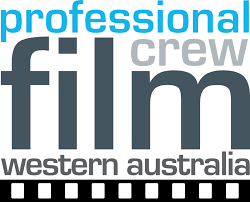


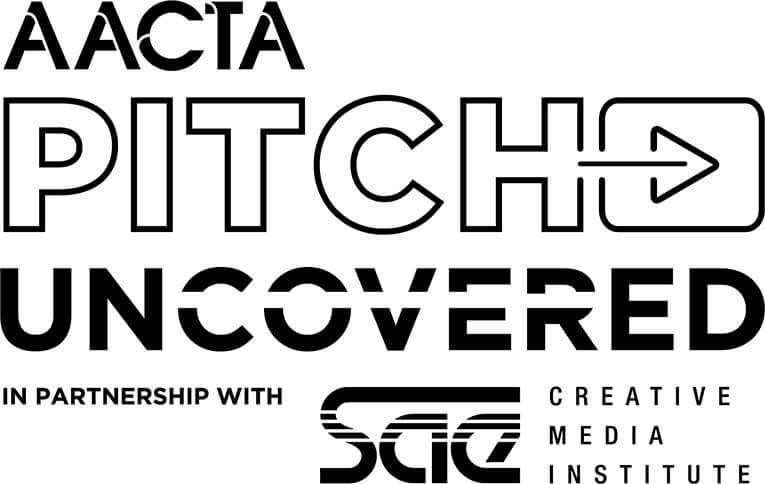
Career Outcomes
What jobs will this course lead to?
- Video Editor
- Producer
- Cinematographer
- Colourist
- Director
- Screenwriter
- Production Designer
- Camera Assistant

What our students say about SAE


Jovian Ubukata
Bachelor of Film, graduated 2024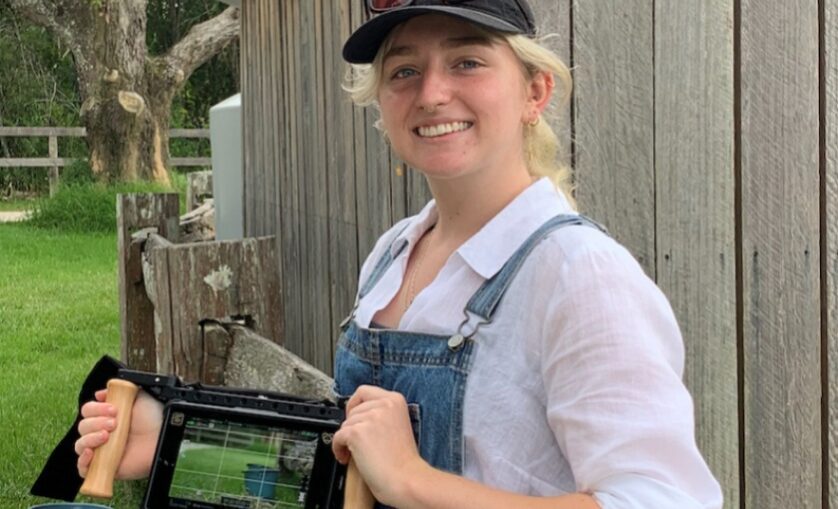
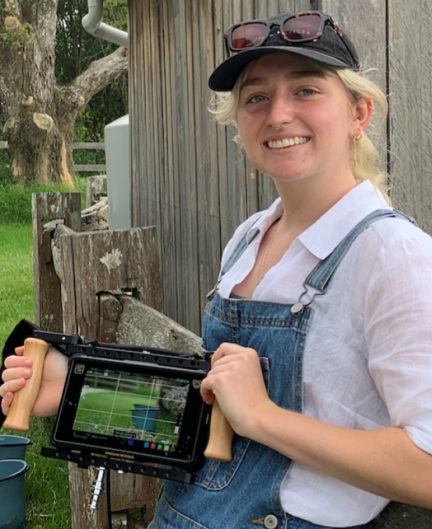
Mia Charleson
Bachelor of Film (Production), graduated 2024

Hayden Huynh
SAE Alumni | Current Job: Producer, Channel Nine

Expert Spotlight: Mairi Cameron
Mairi Cameron | Film lecturerSAE Bachelor of Film offers:
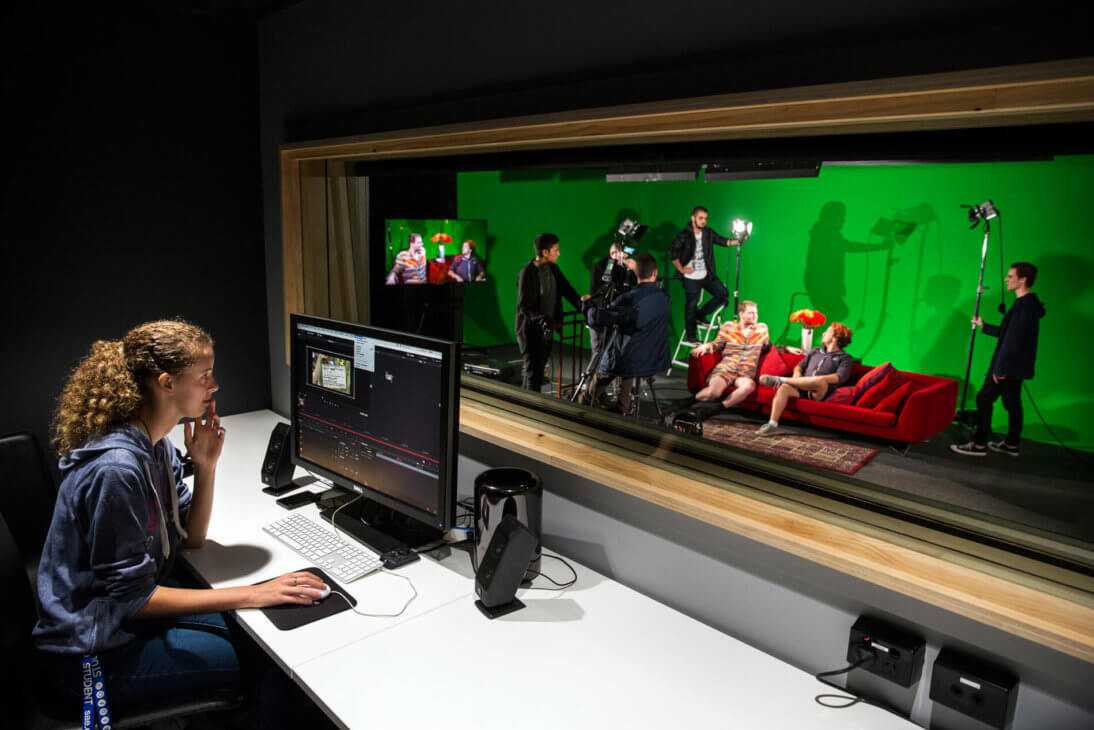
YOUR CAREER IN FILM BEGINS NOW
Tools & Software





Film Skills
FEE‑HELP* is an Australian Government loan scheme that assists eligible fee paying students pay all or part of their tuition fees. It cannot be used for additional study costs such as accommodation or text books. The total amount of FEE‑HELP a person can use is known as the ‘FEE‑HELP limit’.
Once a person begins using FEE‑HELP, the amount of FEE‑HELP they have left to use is known as their ‘FEE‑HELP balance’.
* Terms and conditions apply. For the latest updates regarding FEE-HELP please refer to sae.edu.au/fees
SAE has three intakes per year: February, May and September. Short courses and certificates courses may have different intake timings. View our academic calendar for trimester start dates or contact your campus for further information.
Equipment is available for on and off campus production work, with some changes to the hire and use of equipment, guided by health and hygiene protocols. We have made some slight adjustments to teaching and assessments to ensure that projects will not be impacted. For more information about hiring equipment and booking studios, please contact Student Services or the Tech Team at your campus.
CREDIT AND RECOGNITION OF PRIOR LEARNING
SAE may recognise your prior learning and may grant credit towards satisfying the requirements for a higher-level program. This is applied where previous learning is considered equivalent to the content and learning outcomes prescribed for units within the program.
For full details, please refer to SAE’s policy on recognition of prior learning and credit transfers.
